Thailand national football team
The Thailand national football team (Thai: ฟุตบอลทีมชาติไทย, RTGS: futbon thim chat thai, pronounced [fút.bɔ̄n tʰīːm t͡ɕʰâːt tʰāj]) represents Thailand in senior international football and is controlled by the Football Association of Thailand.
 | ||||
| Nickname(s) | ช้างศึก (Changsuek) (War elephants) | |||
|---|---|---|---|---|
| Association | FA Thailand | |||
| Confederation | AFC (Asia) | |||
| Sub-confederation | AFF (Southeast Asia) | |||
| Head coach | Akira Nishino | |||
| Captain | Siwarak Tedsungnoen | |||
| Most caps | Kiatisuk Senamuang (134) | |||
| Top scorer | Kiatisuk Senamuang (71) | |||
| Home stadium | Rajamangala Stadium | |||
| FIFA code | THA | |||
| ||||
| FIFA ranking | ||||
| Current | 111 | |||
| Highest | 43 (September 1998) | |||
| Lowest | 165 (October 2014) | |||
| First international | ||||
(Bangkok, Thailand; 20 August 1948)[2] | ||||
| Biggest win | ||||
(Bangkok, Thailand; 24 May 1971) | ||||
| Biggest defeat | ||||
(Melbourne, Australia; 30 November 1956) | ||||
| Asian Cup | ||||
| Appearances | 7 (first in 1972) | |||
| Best result | Third place (1972) | |||
| AFF Championship | ||||
| Appearances | 12 (first in 1996) | |||
| Best result | Champions (1996, 2000, 2002, 2014, 2016) | |||
Thailand has made two FIFA World Cup appearances: first in 1970 and again in 2010, but have never progressed beyond the first stage of a finals tournament. Thailand obtained first win in the AFC Asian Cup in 2007 and had to wait 47 years to finally sneak out of the group stage in 2019.[3] Thailand had competed twice in the Summer Olympics.
Five AFF Championship trophies and nine senior-level gold medals of Southeast Asian Games all but reinforced Thailand's foothold as the most successful football team in Southeast Asian region. Apart from earning third place in the 1972 AFC Asian Cup and fourth-place finishes in the 1990 and 1998 Asian Games, the team never won any cup or gold medal in the continental and global competitions.[4]
History
1915–1995: dynastic establishment
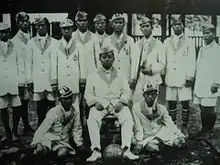

The team's predecessor, operated under the name of Siam, was founded in 1915 and played its first unofficial match against a team of Europeans at the Royal Bangkok Sports Club Stadium on 20 December that year. The team played its first international match in 1930 against the Indochina national team, which included both South Vietnamese and French players.[5]
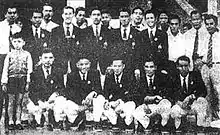
Thailand appeared in the 1956 Summer Olympics in Melbourne, where they've lost to Great Britain 0–9 is largest till date, thus failed to advance to the quarter-finals. In 1965, Thailand harbored its first distinct title: the very first place in the Southeast Asian Games. They made their second and latest appearance at the Summer Olympics in 1968, losing all three matches by at least 3 goals margin to Bulgaria, Guatemala, and Czechoslovakia hence en route to a first-round exit.
During the 1992 AFC Asian Cup qualification, Thailand gained a significant success defeating South Korea 2–1 and Bangladesh 1–0 to top the group and qualify to the 1992 AFC Asian Cup. The team's performance at the final tournament was drawing first two matches with Qatar and eventual 3rd place China then losing 0–4 to Saudi Arabia. In 1994, manager Thawatchai Sartjakul assembled a team that has been denounced as the "dream team" with players like Kiatisuk Senamuang, Tawan Sripan and Dusit Chalermsan.
1996–2016: flag bearer of Southeast Asia
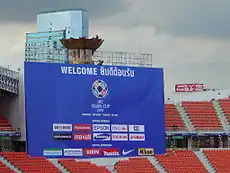
In 1996, Thailand defeated Malaysia 1–0 and win the ASEAN Football Championship (then called the Tiger Cup) for the first time. Thailand were favorites to regain the crown in 2007, 2008 and 2012 only to lose tight finals to Singapore and Vietnam respectively.
The regional 1998 Tiger Cup saw Thailand met Indonesia in a match that ill-hearted players from both team deliberately making actions aimed to avoid facing hosts Vietnam in the semi-finals and undergoing technical burden of moving training bases from Ho Chi Minh City to Hanoi.[6] FIFA fined both teams $40,000 for "violating the spirit of the game". Thailand eventually lost the match, inevitably encountered and failed to Vietnam in the semi-finals.
Thailand consecutively qualified to and participated in two AFC Asian Cup final tournaments both held within Western Asia in 1996 and 2000 when their "dream team" was beginning its golden period. Coincidentally in both editions, the team's opponents all came from Western Asia and they are Saudi Arabia, Lebanon, Iran and Iraq, with the latter two share the same group with Thailand twice. In both editions, Thailand made two draws and lost the rest, bottomed the group stage of the first and is the worst third-placed team of the second edition.
The final 2000 AFF Championship match between Thailand and Indonesia, at a sold out Rajamangala, was almost a carbon copy of their group stage's encounter. The War Elephants triumphed 4–1 again with Worrawoot setting up camp at the opponents' goal. The 28-year-old scored twice in their first match and in the final struck a hat-trick in the first 32 minutes.[8] In the final 2002 AFF final, Thailand again met Indonesia (who was now the host) and was hold draw despite taking a 2–0 lead and won the game in the penalty shootout.[9]
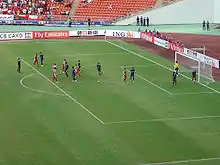
Thailand again qualified to the Asian Cup in 2004 and was put into a group with Japan, Iran and debutant Oman. Despite vast experiences in the Asian Cup, the team has yet to show a sign of improvement as they lost all matches and became the worst-performed team in the whole tournament.
The sign of improving only came in the 2007 AFC Asian Cup when Thailand participated as a well-prepared co-host and was placed with the debutant Australia, Oman and Iraq. The team manages a draw to Iraq and a historic win over Oman. With 4 points ahead, Thailand's chance to qualify to the next round for the first time since 1972 was all but shattered by the likes of Australia in a 0–4 demolition. The tournament witnessed the end of Thailand's recognizable generation with later retirements of Kiatisuk, Tawan and Pipat.
In September 2008, Thailand sign a four-year contract with the English coach Peter Reid[10] but Reid left his position by mutual consent after only a year in charge[11] as his team fail to clinch the championship of 2008 AFF Championship after 2–3 on aggregate lost to Vietnam in the finals.
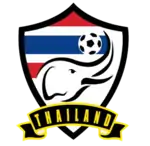
In September 2009, Bryan Robson agreed to coach Thailand in his first foray into international football management[12] and was contracted to manage the team through to the 2014 World Cup. In November, Robson celebrated his first competitive match in charge of the team with an away victory against Singapore in a 2011 Asian Cup qualifying group match[13] but then lose to the same opponent back home. Then, two goalless draws with Jordan and Iran in January 2010 and an away defeat to Iran in March all effectively ended the chance of qualifying for the Asian Cup. In preparations for the 2010 AFF Cup, Robson led Thailand to victorious run against Singapore and Bob Houghton's India in a series of friendlies. Entering the tournament in December, he failed to bring Thailand past group A after managing only draws against Laos and Malaysia and losing to Indonesia.
Robson resigned as Thailand's manager on 8 June 2011, citing health problems as the reason and was replaced by Winfried Schäfer, who would be the ninth German person to coach the Thailand team.
The new coach called up starlets for the 2014 World Cup qualifiers and have the starting set of matches losing minimal to Australia, defeating Oman 3–0 and drawing Saudi Arabia but did not make it after losing to these teams altogether in the second set. In the 2012 AFF Cup, Thailand topped their group and surpassed Malaysia in semi-finals but handed the crown to Singapore in the finals. In the 2015 Asian Cup qualification, Thailand showed setback with its defensive frailties exposed by Middle Eastern rivals when losing all 6 games in the qualifiers, conceding 21 goals in the process.
In June 2013, Schäfer canceled his contract. The FA of Thailand appointed the former player Kiatisuk Senamuang as the new caretaker coach for the national team. His first ride was a friendly against China PR on 15 June, which Thailand won 5–1.
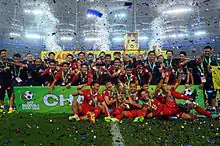
In 2014, Thailand ended a 12-year drought of the AFF champion title from the late goals by Charyl Chappuis and Chanathip Songkrasin which gave them a dramatic 4–3 aggregate victory over Malaysia in the second leg of the finals at Bukit Jalil. The team did not lose any match up until the second leg of the finals and often featured a tiki-taka playing style, for instance including 27 consecutive passes during the first leg of the finals against Malaysia.[15] Kiatisuk consequently became the first person to win the ASEAN Football Championship as both a player and a coach. Thailand succeeded in protecting AFF Championship reign two years later in 2016, defeating Indonesia 3–2 aggregately despite losing the first leg.
In 2015, evasion fuelled hope for both the players and Thailand fans of finally reaching the World Cup tournament and tension is mounting as the national team commenced AFC's second round for 2018 World Cup qualification.[16][17] Teerasil Dangda, Thailand's renowned striker, rejoined the rank of the national team after his loan with UD Almería ended earlier. Drawn in Group F along with Chinese Taipei, Iraq and Vietnam, who Thailand played first match home against on 24 May and can only be won by a victory goal from a shot 20 yards away. They played a much easier match at the same opponent's home soil, winning 3–0. Thailand won both matches against Chinese Taipei and drew 2–2 both matches against Iraq, allowing them to qualify for the next round as group F winners.[18] In the last round, Kiatisuk's men shared the same group with Australia, Japan, Saudi Arabia, UAE along with previous opponent, Iraq. Again, Thailand was eliminated without winning a match and recorded only two points out of ten matches.
2017–present: Rebuilding to achieve in Asia’s level
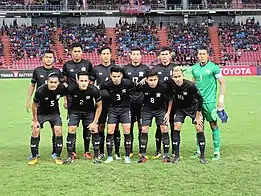
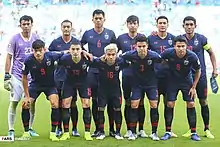
Since taking over the administration by Pol.Gen. Somyot Poompanmoung, FA Thailand aims to drive men's national football team to be one of the leading teams in Asia by which there are concrete 20 years development plans and preparations.[19] After the elimination from World Cup campaign, Kiatisuk resigned, Thailand appointed Milovan Rajevac as a coach, thus marked the first non-Brazilian/German/English team's chief.
Ahead of 2019 AFC Asian Cup, Thailand was drawn into group A together with host UAE, Bahrain and India. Rajevac oversaw Thailand in the commencing 1–4 loss to India. The Serbian coach was sacked and his assistant, Sirisak Yodyardthai became the interim coach on 7 January. Sirisak guided Thailand to a win over Bahrain and a draw with the host UAE, enough to move on to the knockout stage of the AFC Asian Cup for the first time in 47 years. Their success was greeted with congratulation from the FA.[20] Thailand encountered China in the round of sixteen, taking an early lead but eventually lost 2–1 as China make their decisive respond.
Rivalries
Thailand takes high priority on facing rivals from fellow Southeast Asian regions.
Vietnam
Thailand's rivalry with Vietnam is one of the most heated rivalries in the region and is often dubbed as "El Clásico" of ASEAN region. However, the rivalry has developed differently from times. During the time of South Vietnam, Thailand had a poorer performance with the team only won 4 matches against the South Vietnamese.[21] However, when Vietnam rejoined international football at 1991, Thailand has been more dominant than their eastern rival, winning 15 matches, though Vietnam's football strength has increased significantly since the late 2010s. Overall record however is unfavorable for Thailand against Vietnam, with only 19 wins compared to 22 losses and 6 draws.[22] In their latest confrontation in the 2022 World Cup qualification, the Thais were held goalless in Hanoi.
The rivalry has its root from long Siamese–Vietnamese wars, due to both countries' long militaristic traditions.[23] This was eventually expanded to football as well, with Vietnamese fans hold a significant distinction for refusing to accept Thai football hegemony unlike the rest of Southeast Asia which sees Thailand as the football leader, which is often seen in press and media of Vietnam alike which further increases the importance of the rivalry.[24] Since the 21st century as well, Thailand has managed to qualify more AFC Asian Cup than Vietnam, but often fare worse than the Vietnamese, with Vietnam reaching the quarter-finals twice while Thailand's best performance is only the round of sixteen.
Malaysia
Thailand has a tense rivalry with its southern neighbor Malaysia. Thailand's overall record is not favorable, with only 35 wins, 35 draws and 41 losses to the Malay Tigers.[25]
Before Malaysia fell into football scandal that weakened the country's football development from the 1990s to 2018, Malaysia was Thailand's most annoying and difficult opponent in the region. Thailand also holds a poor record on every away games to Malaysia since 1990, with the Thais have never been able to beat the Malays at Malaysian turf.[26] Nonetheless, Thailand holds more prestigious records in international football competitions compared to the Malaysians.
In the two countries' most recent encounter, Malaysia beat Thailand 2–1 in the FIFA World Cup 2022 qualifiers, extending Thailand's winless streak away in Malaysia.
Indonesia
Thailand has an overwhelming performance when it comes to Indonesia, with 33 wins and only 18 losses and 17 draws.[27]
During the time Indonesia was a recognizable ASEAN football power, matches between two teams often attract large fan attentions. Indonesia has met Thailand in three finals of the AFF Championship at 2000, 2002 and 2016, and Thailand all triumphed at the expense of Indonesia.[28] However, while Thailand was able to elevate its position to become a more serious Asian competitor, Indonesia fell into mismanagement and matches between two teams also began to lose its importance. Most recent encounter between two countries happens in the 2022 World Cup qualification, where Thailand easily thrashed Indonesia 3–0 away.
Myanmar
When Myanmar was still a football power, it was Thailand's first-ever rival, owning by the history of the Burmese–Siamese wars which led to a strong nationalist fervor among Thai fans with its desire to beat the Burmese.[29] But with Myanmar weakened following the reign of Ne Win and junta, Thailand improved and since 1983, holds an undefeated streak over its western rival. The rivalry today only serves mostly in the memoir of Burmese fans who are nostalgic to a great era when Myanmar was still a leading football power, while for Thai fans, they have more important opponents to concentrate at.[30]
Thailand has 21 wins, 14 draws and 15 losses to Myanmar.
Singapore
The rivalry between Thailand and Singapore is a much new one, and the importance of the rivalry is emphasized by the domination of both countries in the AFF Championship, with Thailand won five times and Singapore is behind one title. Up until 2012, Singapore and Thailand have been the more dominant forces in Southeast Asian football.[31] Thailand has a dominant head-to-head record to Singapore, beating the Singaporeans 33 times, only draw 17 times and lost 12 times.[32] However, football development in both countries have been vastly different, with Thailand relies mostly on its own domestically developed players, while Singapore has been reliant on naturalized players.
Image
Colours

| Wikimedia Commons has media related to Thailand national football team. |
In older days, the primary kits worn are all red.
The Thai senior national team used to play with a kit made by local provider FBT. This contract lasted until June 2007.
In July 2007, Nike became kit providers, and from October that year, the team played in an all-yellow home kit in honour of King Bhumibol Adulyadej's 80th birthday (yellow being the royal color), having used two other yellow kits in friendlies against China on 16 May 2007[33] and Qatar on 2 July 2007.[34]
From October 2012 through 2016, Nike was replaced by Grand Sport in a deal worth 96M baht (3.1M USD).[35] The new home kit of Thailand reverted to all-red and the away kit to all-blue. However, the order was reversed from the 2014 AFF Championship onward.
In September 2016, the national team signed a four-year contract with Warrix Sports to be their kit provider from 2017.[36] On 4 January 2017, the new provider introduced a new pair of Thailand kits that was all black home and all white away, honouring their late King Bhumibol for a year after his passing, with black and white being the traditional Thai colors of mourning.
In March 2018, Warrix returned Thailand to the all-blue first, all-red second kits with an addition of a white-black third kit.[37]
In December 2018, a new, darker version of blue, red kits and an all white third kit were presented for the 2019 AFC Asian Cup campaign and the rest of 2019. For the 2019 King's Cup in May, Warrix released the kit consisting of a yellow shirt with white shorts and socks – yellow reportedly being the favorite color of the newly crowned King Maha Vajiralongkorn.
Facilities
Most home matches took place in Rajamangala National Stadium in Bang Kapi District of Bangkok. Built for the 1998 Asian Games, the stadium is the largest sporting facility in Thailand with a capacity of 49,749, all seated. International matches are also occasionally played at Supachalasai Stadium, 700th Anniversary Stadium, 80th Birthday Stadium, Thammasat Stadium, Chang Arena, and SCG Stadium.
Fixtures
Fixtures are broadcast by Thairath TV (for friendlies and round 2 of FIFA World Cup - AFC qualification matches) and Channel 7 (for the AFF Suzuki Cup, possible round 3 of FIFA World Cup - AFC qualification and AFC Asian Cup matches, due to broadcasting contract with Lagardère Sports and Entertainment).
- Only record the results that affect the FIFA/Coca-Cola World Ranking. See FIFA 'A' matches criteria.
Win Draw Loss
2021
| March 2021 2022 WCQ R2 | Thailand | v | | Bangkok, Thailand |
| --:-- UTC+7 | Stadium: Rajamangala Stadium |
| June 2021 2022 WCQ R2 | United Arab Emirates | v | | United Arab Emirates |
| --:-- UTC+4 |
| June 2021 2022 WCQ R2 | Thailand | v | | Thailand |
| --:-- UTC+7 |
Coaching Staff
Managerial History
PlayersCurrent squadThe following 24 players were called up for training camp for FIFA Day on 11-15 November 2020.
Recent call-upsThe following players have been called up within the last 12 months.
Notes:
Previous squads
| |||||||||||||||||||||||||||||||||||||||||||||||||||||||||||||||||||||||||||||||||||||||||||||||||||||||||||||||||||||||||||||||||||||||||||||||||||||||||||||||||||||||||||||||||||||||||||||||||||||||||||||||||||||||||||||||||||||||||||||||||||||||||||||||||||||||||||||||||||||||||||||||||||||||||||||||||||||||||||||||||||||||||||||||||||||||||||||||||||||||||||||||||||||||||||||||||||||||||||||||||||||||||||||||||||||||||||||||||||||||||||||||||||||||||||||||||||||||||||||||||||||||||||||||||||||||||||||||||||||||||||||||||||||||||||||||||||||||||||||||||||||||||||||||||||||||||||||||||||||||||||||||||||||||||||||||||||||||||||||||||||||||||||||||||||||||||||||||||||||||||||||||||||||||||||||||||||||||||||||||||||||||||||||||||||||||||||||||||||||||||||||||||||||||||||||||||||||||||||||||||||||||||||||||||||||||||||||||||||||||||||||||||||||||||||||||||||||||||||||||||||||||||||||||||||||||||||||||||||||||||||||||||||||||||||||||||||||||||||||||||||||||||||||||||||||||||||||||||||||||
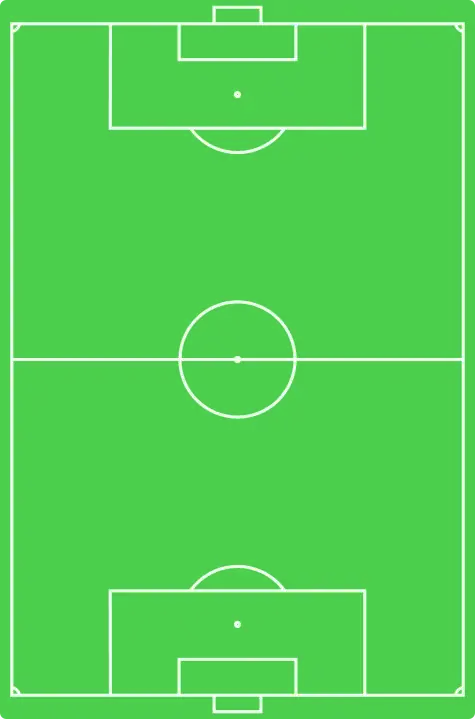
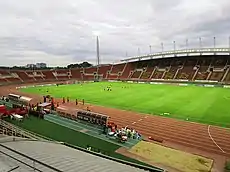

.jpg.webp)
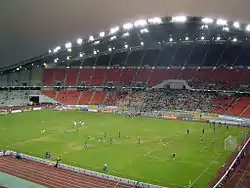
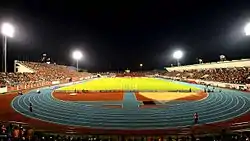

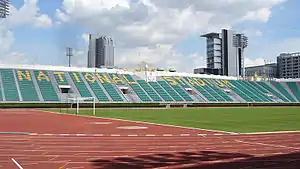
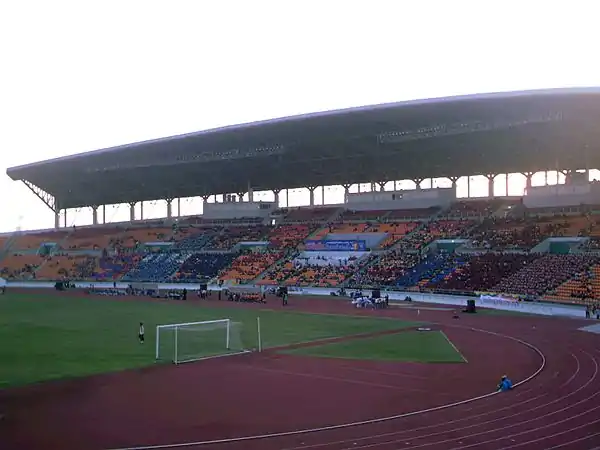
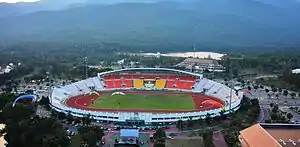
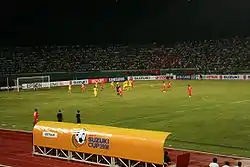
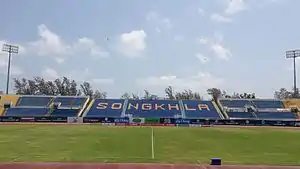
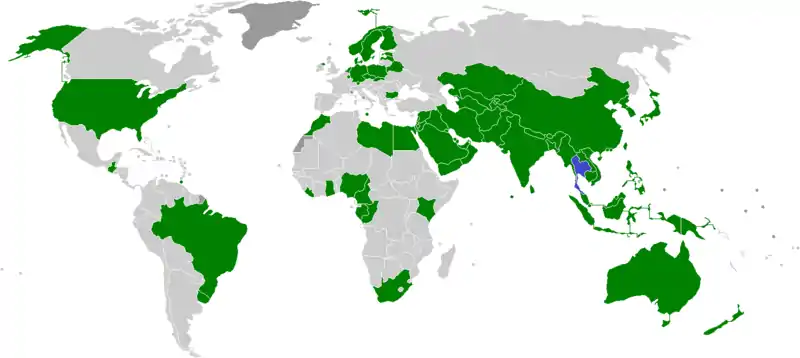

.svg.png.webp)
.svg.png.webp)